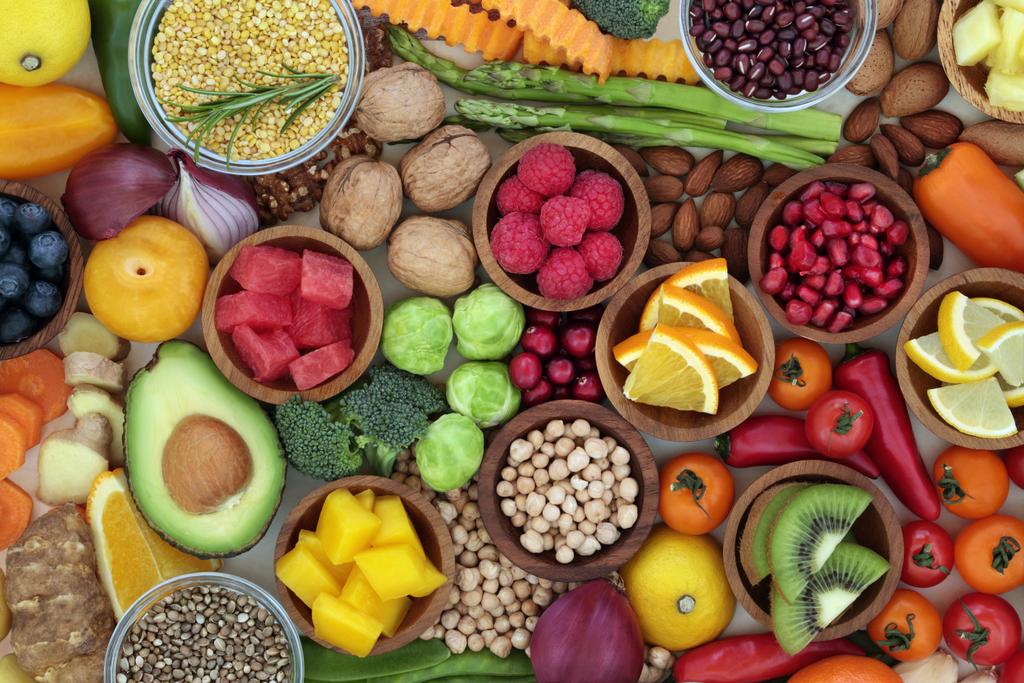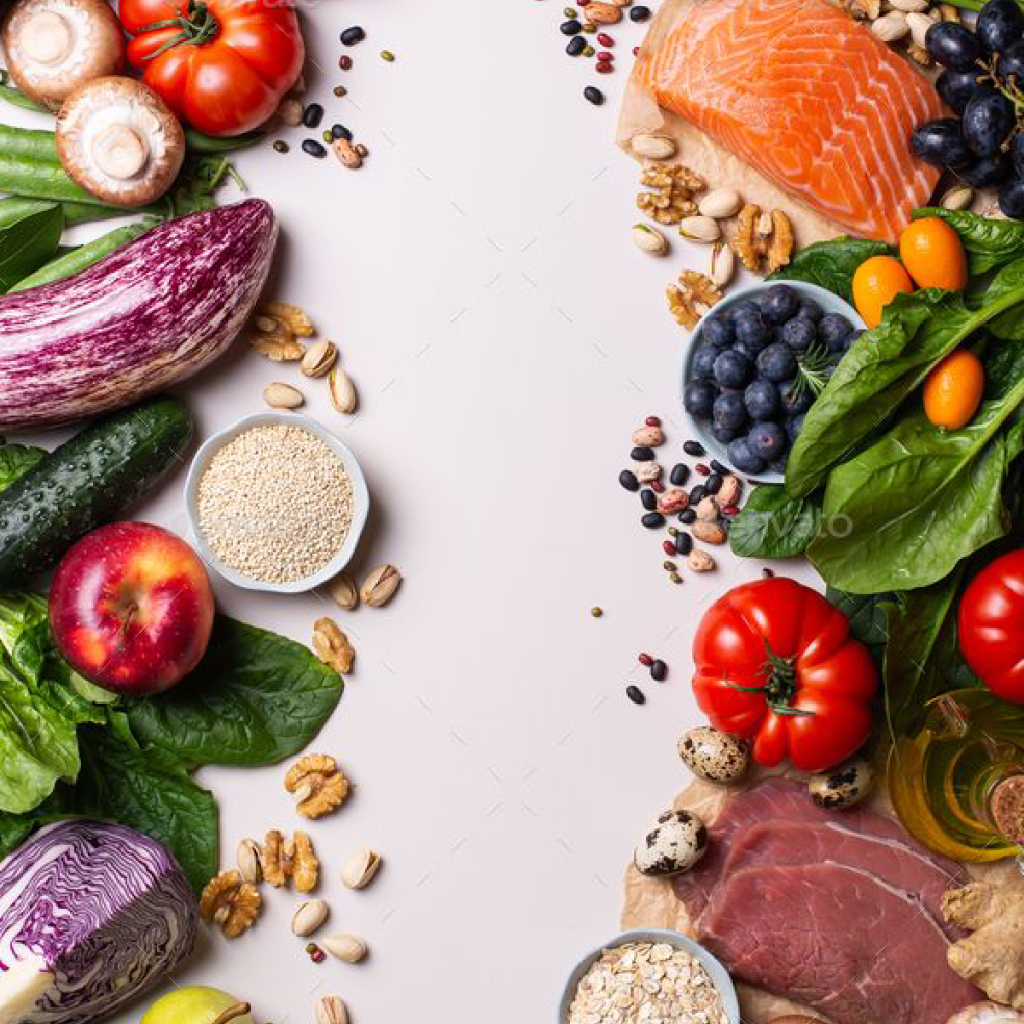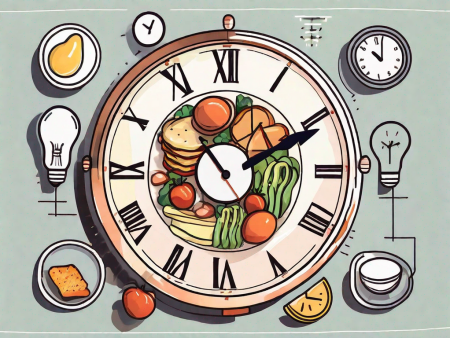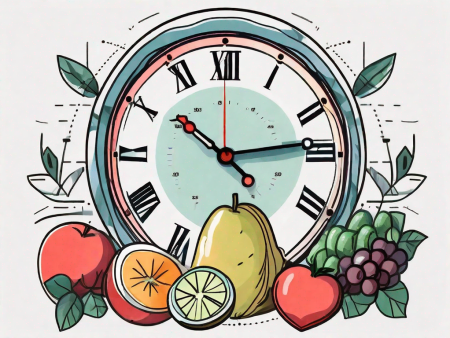Discover the fascinating relationship between phytochemicals and metabolism in this informative article.
How Do Phytochemicals Affect Metabolism?
Have you ever wondered how those mighty little plant chemicals, known as phytochemicals, can have such a powerful effect on your metabolism? Well, wonder no more! In this article, we’ll dive deep into the world of phytochemicals and explore their fascinating relationship with our bodies’ metabolic processes.

Understanding Phytochemicals: Definition and Types
Before we get into the nitty-gritty of how phytochemicals work their magic, let’s start with the basics. Phytochemicals, also known as phytonutrients, are naturally occurring compounds found in plants. These compounds are not essential nutrients like vitamins and minerals, but they provide a plethora of health benefits nonetheless.
Phytochemicals come in various forms, each with its own unique set of superpowers. Let’s take a closer look at the different types of phytochemicals at play:
The Role of Phytochemicals in Plants
Phytochemicals are not just sitting around in plants, looking pretty. Oh no, they have some serious work to do! These natural superheroes help protect plants from environmental stressors, such as pests, UV radiation, and diseases. They also play a role in the plant’s color, flavor, and aroma. Talk about multitasking!
But how do these phytochemicals actually carry out their superhero duties? Well, let’s dive into the specifics. Carotenoids, for example, are pigments that give fruits and veggies their vibrant hues. Not only do they make our plates look more appealing, but they also provide antioxidant powerhouses that support everything from eye health to a robust immune system.
Now, let’s meet the diverse cast of phytochemicals that we have the pleasure of interacting with:
- Carotenoids: These pigments give fruits and veggies their vibrant hues and provide antioxidant powerhouses that support everything from eye health to a robust immune system.
- Flavonoids: No, they’re not the latest dance craze. Flavonoids are antioxidants that can be found in tea, cocoa, and a variety of colorful fruits and vegetables. They may help protect against heart disease and have anti-inflammatory properties.
- Phenolic Acids: These compounds are found in foods like berries, apples, and coffee. They have been shown to have antioxidant and anti-inflammatory effects, making them superheroes for your overall health.
- Phytoestrogens: Think of them as the cool plant versions of estrogen. Found in legumes, soy, and flaxseeds, phytoestrogens may have a balancing effect on hormone levels and promote heart health.
- Allyl Sulfides: These pungent compounds found in garlic and onions are not just responsible for keeping vampires away. They may also help lower cholesterol levels and reduce the risk of certain cancers.
As you can see, phytochemicals are a diverse bunch, each with its own unique set of benefits. So, the next time you enjoy a colorful plate of fruits and vegetables, remember that you’re not just satisfying your taste buds, but also giving your body a dose of these incredible plant compounds.
The Connection Between Phytochemicals and Metabolism
Now that we have a better understanding of what phytochemicals are, let’s dig deeper into their intricate dance with our body’s metabolic processes. Brace yourself for some mind-blowing information!
Phytochemicals, also known as plant chemicals, are compounds found in various fruits, vegetables, and other plant-based foods. These compounds not only give plants their vibrant colors and distinct flavors but also offer a wide range of health benefits for humans.
When phytochemicals enter our bodies, they can get up to some serious metabolic mischief. They can influence enzymes involved in metabolic pathways, potentially boosting or inhibiting various processes. For example, some phytochemicals have been found to activate enzymes that help break down fats, aiding in weight management and reducing the risk of obesity.
But the influence of phytochemicals on metabolism goes beyond just enzyme activation. Some phytochemicals have even been shown to activate genes that play a role in metabolism. These genes can regulate important metabolic processes, such as glucose metabolism, lipid metabolism, and energy production.
Additionally, phytochemicals may enhance the body’s natural detoxification processes and help maintain a healthy gut environment. This ensures that our metabolic machinery keeps chugging along smoothly. A healthy gut microbiome, supported by phytochemical-rich foods, can promote efficient digestion and nutrient absorption, which are essential for optimal metabolism.
The Impact of Phytochemicals on Energy Metabolism
If you’re looking to kick your energy levels up a notch, phytochemicals have got your back! Some phytochemicals, such as those found in green tea and citrus fruits, have been shown to increase fat oxidation and boost energy expenditure. This means that they can help your body burn more calories and fat, potentially aiding in weight loss and improving overall energy levels.
Green tea, for example, contains catechins, a type of phytochemical that has been extensively studied for its metabolic benefits. Catechins have been found to increase thermogenesis, which is the process by which the body generates heat and burns calories. They can also enhance the body’s ability to use stored fat as an energy source, promoting weight loss.
Citrus fruits, on the other hand, are rich in flavonoids, another group of phytochemicals known for their metabolic effects. Flavonoids have been shown to improve insulin sensitivity, which is crucial for maintaining stable blood sugar levels and preventing the development of type 2 diabetes. By enhancing insulin sensitivity, flavonoids can help regulate energy metabolism and prevent excessive fat storage.
So, go ahead and sip on that cup of tea with a knowing smile! The phytochemicals present in these plant-based beverages can not only tantalize your taste buds but also give your metabolism a little extra boost.
The Health Benefits of Phytochemicals
Now that we’ve marveled at the wonder that is phytochemicals and metabolic processes, let’s explore the incredible health benefits they bring to the table:
Phytochemicals and Disease Prevention
Phytochemicals are like the bodyguards of our health. They help protect against chronic diseases, including heart disease, certain cancers, and neurodegenerative disorders. These mighty compounds exert their disease-fighting superpowers through their antioxidant and anti-inflammatory properties, and by promoting healthy cellular function.
When it comes to heart disease, phytochemicals play a crucial role in maintaining cardiovascular health. They help reduce the risk of developing heart disease by preventing the oxidation of LDL cholesterol, which is a major contributor to the formation of plaque in the arteries. By keeping our arteries clear and free from blockages, phytochemicals ensure a healthy blood flow and reduce the chances of heart attacks and strokes.
Moreover, phytochemicals have shown promising results in the prevention and treatment of certain cancers. These compounds have the ability to inhibit the growth of cancer cells and promote their destruction. They also help in reducing the risk of developing various types of cancer, such as breast, prostate, lung, and colon cancer. By incorporating phytochemical-rich foods into our diet, we can give our bodies the ammunition they need to fight off cancer cells and maintain optimal health.
Additionally, neurodegenerative disorders, such as Alzheimer’s and Parkinson’s disease, can be prevented or delayed with the help of phytochemicals. These compounds have been found to protect brain cells from damage caused by oxidative stress and inflammation, which are key factors in the development of these debilitating conditions. By including phytochemical-rich foods in our diet, we can support brain health and reduce the risk of cognitive decline as we age.
Phytochemicals and Weight Management
If you’re on a mission to shed a few pounds, include plenty of phytochemical-rich foods in your diet. These superhero compounds can aid in weight management by reducing inflammation, boosting metabolism, and supporting healthy digestion. Plus, they add an explosion of flavor and color to your plate, making healthy eating a delight!
One of the ways in which phytochemicals contribute to weight management is by reducing inflammation in the body. Chronic inflammation can lead to weight gain and obesity, as it disrupts the normal functioning of hormones involved in appetite regulation and metabolism. Phytochemicals, with their powerful anti-inflammatory properties, help combat this inflammation and restore balance to the body, making it easier to maintain a healthy weight.
Furthermore, phytochemicals have the ability to boost metabolism, which is essential for weight loss and weight maintenance. These compounds stimulate thermogenesis, a process in which the body produces heat and burns calories to generate energy. By increasing thermogenesis, phytochemicals help the body burn more calories even at rest, making weight loss more achievable and sustainable.
In addition to their anti-inflammatory and metabolism-boosting properties, phytochemicals also support healthy digestion. They promote the growth of beneficial gut bacteria, which play a crucial role in digestion and nutrient absorption. By maintaining a healthy balance of gut bacteria, phytochemicals ensure optimal digestion and nutrient utilization, which can contribute to weight management.
So, whether you’re looking to prevent chronic diseases or manage your weight, phytochemicals are your allies in achieving optimal health. By incorporating a variety of phytochemical-rich foods into your diet, you can harness the power of these compounds and reap their numerous health benefits. From vibrant fruits and vegetables to aromatic herbs and spices, nature provides us with an abundance of phytochemicals to support our well-being.
Incorporating Phytochemicals into Your Diet
Ready to welcome more phytochemicals into your life? Here’s how:
Phytochemicals are naturally occurring compounds found in plants that have been shown to have numerous health benefits. By incorporating a variety of phytochemical-rich foods into your diet, you can enhance your overall well-being and support your body’s natural defense mechanisms.
Foods Rich in Phytochemicals
Load up on nature’s colorful bounty! Include a variety of fruits, vegetables, whole grains, nuts, seeds, and legumes in your diet. Think vivid oranges, deep purples, luscious greens, and vibrant yellows. The rainbow is your culinary playground!
For example, oranges are not only a great source of vitamin C but also contain phytochemicals such as flavonoids and carotenoids. These compounds have antioxidant and anti-inflammatory properties that can help protect against chronic diseases.
Deep purple fruits like blueberries and grapes are rich in anthocyanins, which have been linked to improved cardiovascular health and cognitive function.
Luscious greens like spinach and kale are packed with chlorophyll, a phytochemical that has been shown to have detoxifying effects and may help reduce the risk of certain cancers.
Vibrant yellow foods like turmeric and ginger contain curcumin, a powerful phytochemical with anti-inflammatory and antioxidant properties.
Tips for Maximizing Phytochemical Intake
To ensure you’re getting the full benefits of phytochemicals, keep these tips in mind:
- Opt for fresh produce whenever possible. Fresh fruits and vegetables are at their peak in terms of phytochemical content and overall nutritional value. If fresh produce is not available, frozen is a close second as it is typically picked and frozen at its peak ripeness.
- Experiment with different cooking methods. While raw fruits and vegetables are a great way to enjoy phytochemicals, certain cooking methods can help preserve and enhance their goodness. Steaming, roasting, and stir-frying are all great options that can retain the phytochemical content while adding delicious flavors to your meals.
- Go for variety. The more diverse the colors on your plate, the more diverse the phytochemicals! Each color represents different phytochemical compounds, so aim to include a wide range of fruits and vegetables in your meals.
- Keep those peels on! Many fruits and veggies hold valuable phytochemicals in their skins. For example, apple peels contain quercetin, a phytochemical with anti-inflammatory and antihistamine properties. Just make sure to wash them thoroughly before consuming.
By incorporating these tips into your daily routine, you can maximize your phytochemical intake and reap the many health benefits they have to offer. So, embrace the vibrant colors of nature and let phytochemicals nourish your body from the inside out!
Potential Risks and Considerations
While phytochemicals are generally safe for most people, it’s essential to be aware of potential risks and interactions:

Possible Side Effects of Phytochemicals
While rare, some individuals may experience allergic reactions or digestive issues when consuming certain phytochemicals. If you notice any adverse effects, it’s best to consult with a healthcare professional.
Interactions Between Phytochemicals and Medications
If you’re taking medications, it’s crucial to discuss any potential interactions with your healthcare provider. Some phytochemicals may interfere with the absorption or effectiveness of certain drugs.
So, there you have it – the mysterious world of phytochemicals and their delightful impact on metabolism. Now, armed with this newfound knowledge, go forth and make those colorful, nutrient-packed choices that will keep your metabolism humming and your health thriving!







